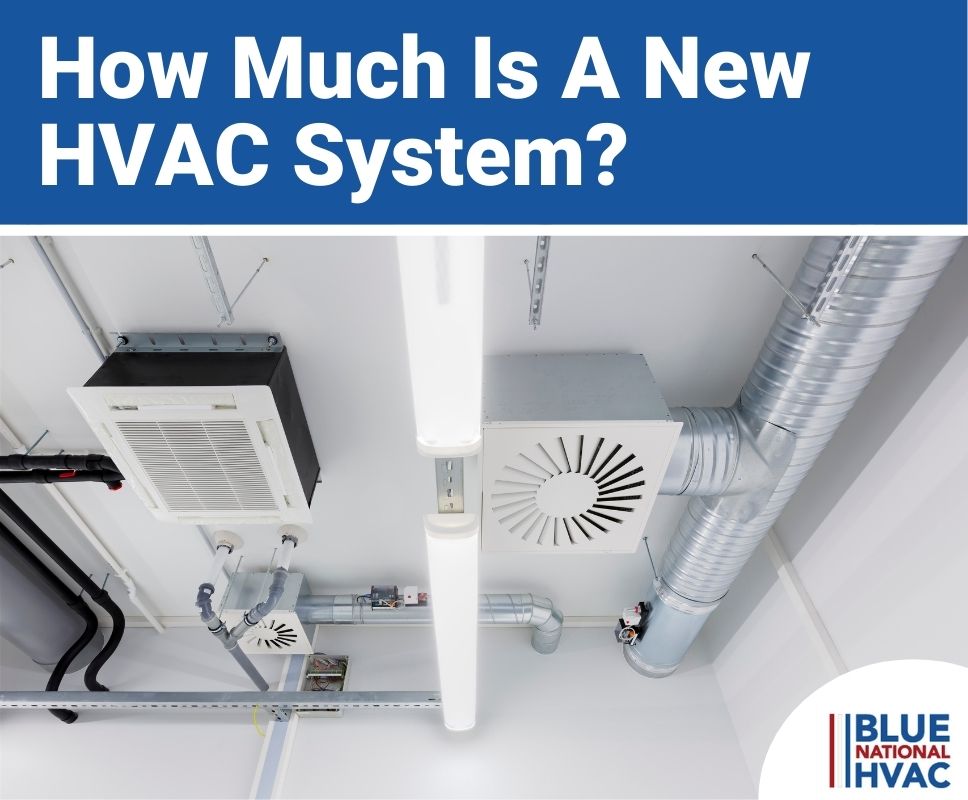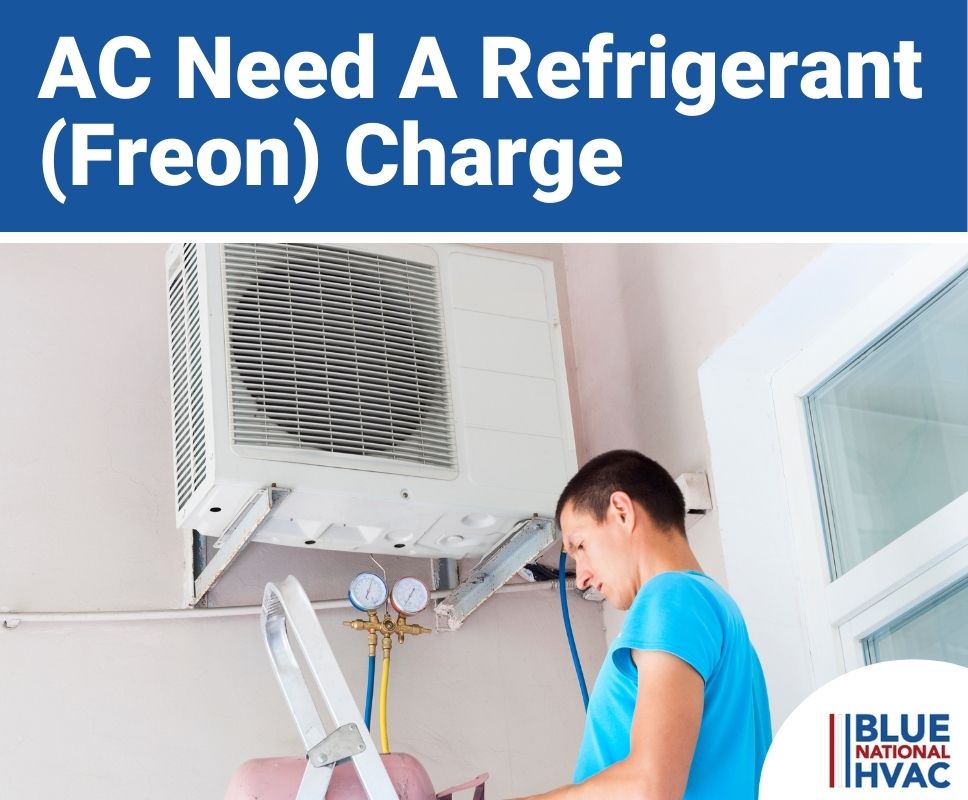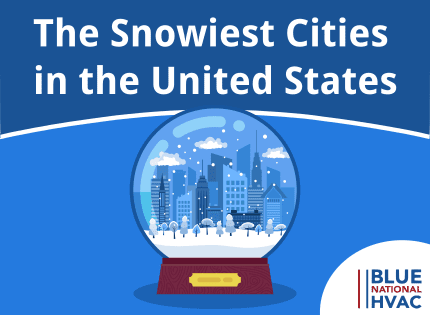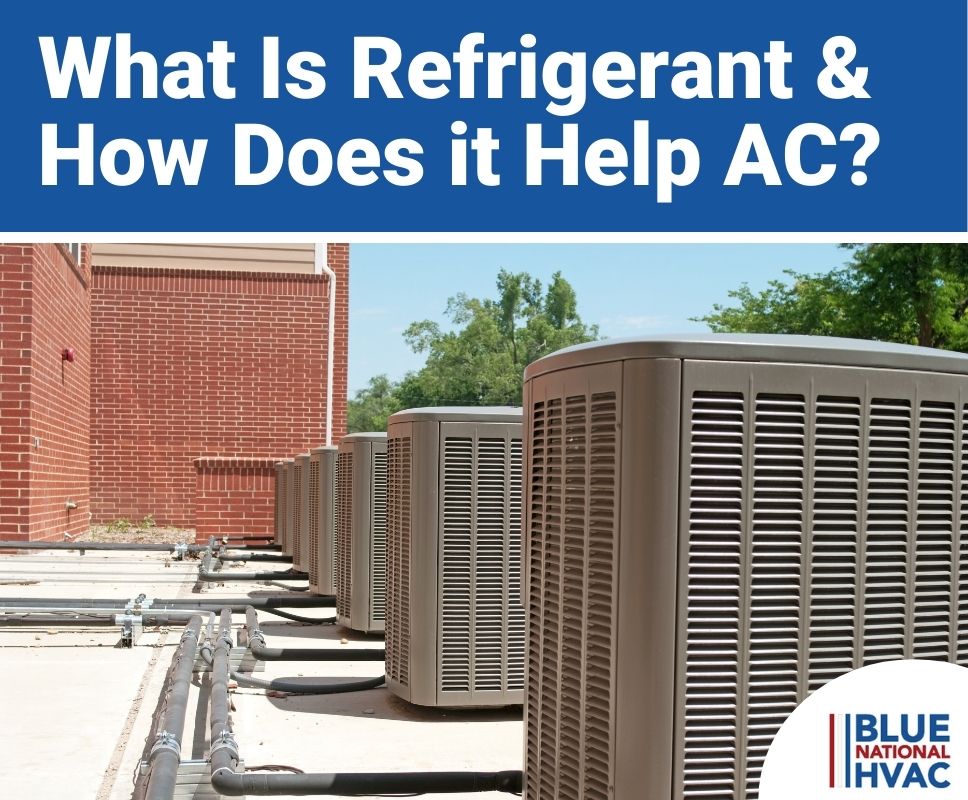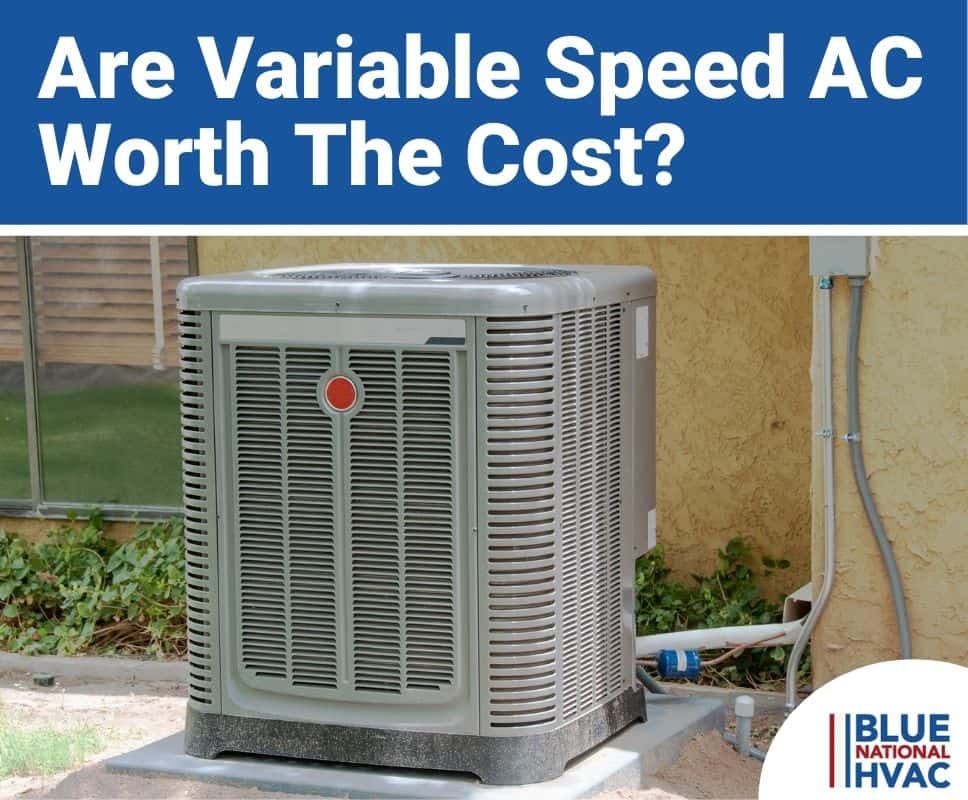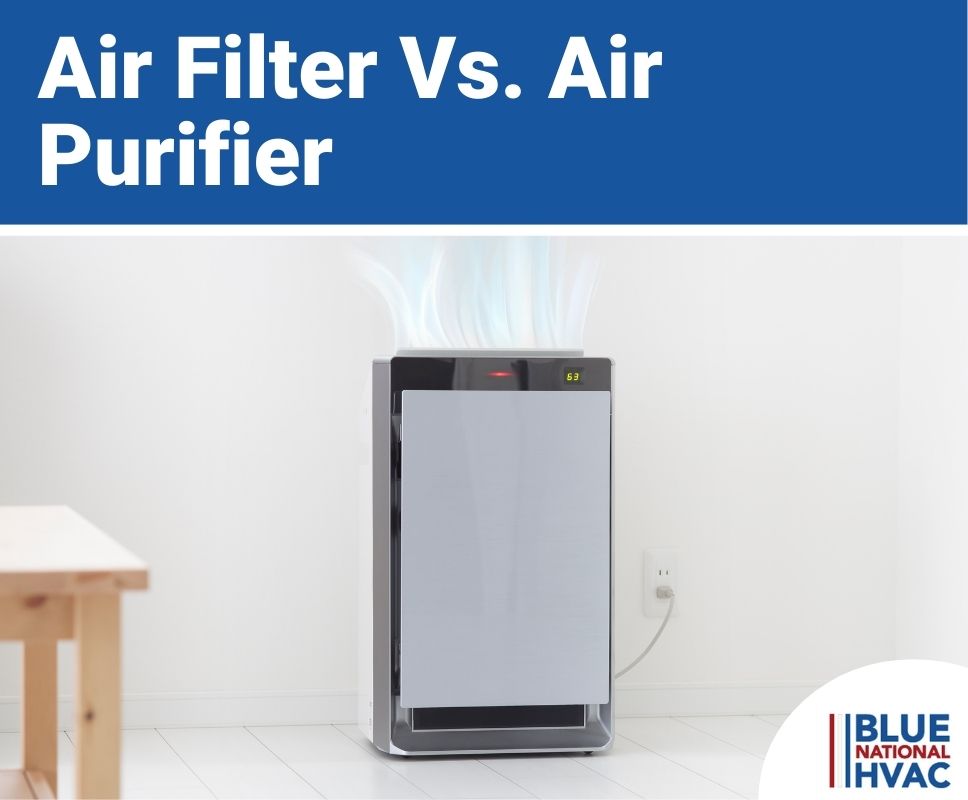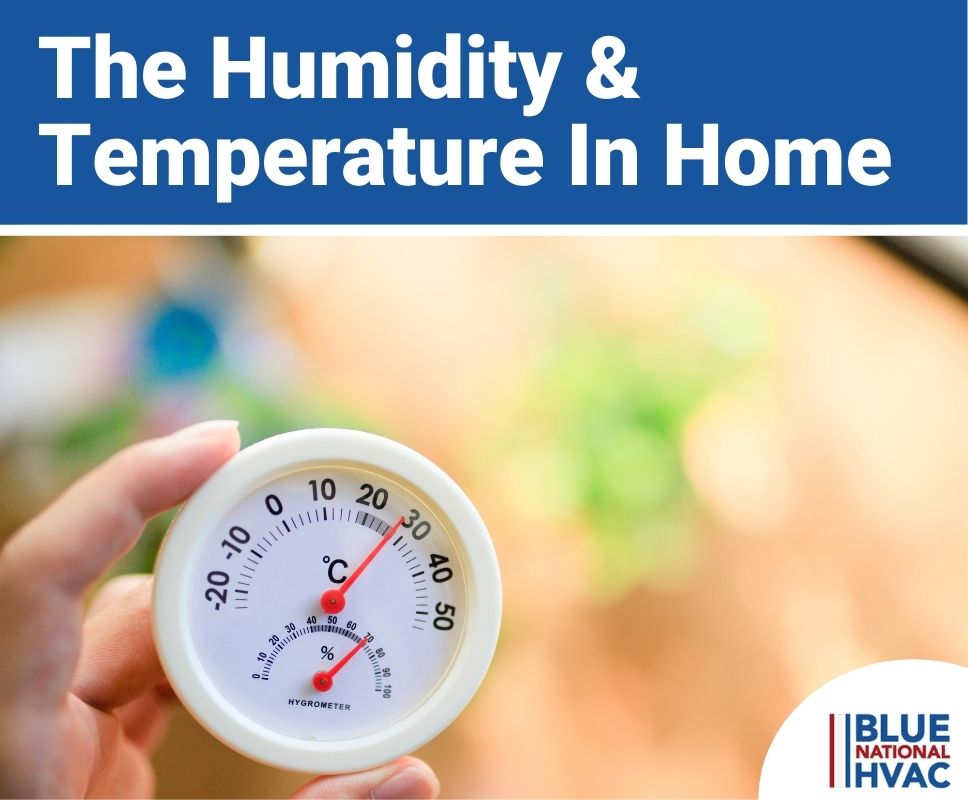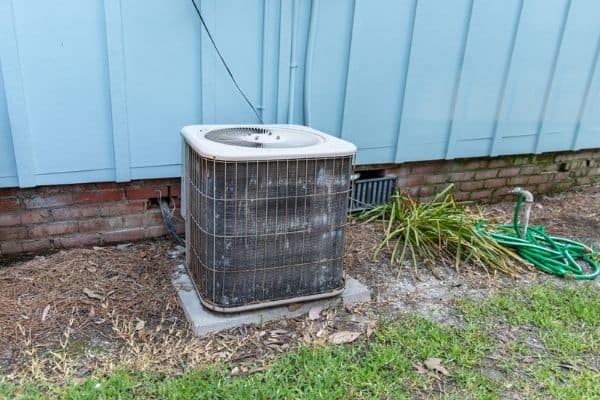The Costs of HVAC Systems
When it comes to HVAC systems, there is no shortage of different types (central AC, heat pump, furnace, etc.) and options available to homeowners. If you’re looking for a new system, HVAC replacement cost is likely an important factor.
However, the upfront cost isn’t the only factor homeowners should consider. To make a fully informed decision on a new HVAC system, review our additional factors and considerations section later in this article, or get in touch with one of our HVAC specialists today.
Central Air Conditioner Costs
The cost of a new air conditioner varies by the efficiency rating, size (cooling capacity), fan speed, brand, and model. For example, an air conditioner sized for a 3,500 square foot home costs more than a smaller capacity unit rated for a 1,200 square foot home.
Central AC units are the most common type of cooling system. Central AC systems provide cooling to your whole house from one central unit. They have a lot of different cost factors, and when it comes to selecting one for your home, the three most important specifications to consider are:
- Seasonal Energy Efficiency Ratio (SEER) – the ratio of the electricity used to the cooling output of the air conditioner over the entire cooling season
- Cooling capacity – the amount of cooling an air conditioner can provide to a home, measure in BTU and tons (1 ton equals 12,000 BTUs)
- Fan speed – the speed settings available on the blower of the AC unit which varies the airflow; single-speed, two-speed, and variable are the common options
On average, a new central AC unit costs between $1,600 and $4,200 (assuming you have existing ductwork). Of course, the price you pay varies by brand, capacity, and SEER rating. The top brands of central AC units include Carrier, Trane, American Standard, Lennox, Amana, Goodman, Rheem, and York.
Window AC Unit Costs
Compared to central air conditioners, window AC units have a significantly lower cost. They are simple systems with all the components, including the compressor and refrigerant lines, mounted directly in a cube chassis that sits inside a window frame.
Plus, with proper installation techniques, most homeowners can install window AC units themselves, which eliminates installation costs.
Window AC unit prices are between $100 to $600 on average, with larger capacity units having the highest costs. Top window AC unit manufacturers include Kenmore, Frigidaire, Haier, GE, and LG.
Window AC units are convenient for homeowners that only need to cool one room. However, they do have some downsides – they block access and the view out of the window, they often don’t look appealing from the outdoors, and their removal and installation seasonally is a cumbersome task.
Portable Air Conditioner Costs
A portable air conditioner is basically a window AC unit on wheels. And instead of being installed directly in the window season long, it sits on the floor and vents out of the window (but they only require about 6 to 10 inches of window height).
Portable AC units cost between $200 to $1,000 on average and vary primarily in cost depending on the cooling capacity. Top portable AC unit brands include Black + Decker, Whynter, LG, Frigidaire, and Honeywell.
Air-Source Heat Pump Costs
Air-source heat pumps have very similar hardware to central air conditioning units. In fact, they use the exact same process – the vapor compression refrigeration cycle and almost the exact same hardware too. However, the air-source heat pumps have one significant component difference, which is the reversing valve. This allows air-source heat pumps to provide heating and cooling to homes.
On average, the price of an air-source heat pump ranges from $3,600 to $5,500. They are higher costs than most central air conditioners. However, remember they provide heating too.
Note: If you need new ductwork, your installation costs will be much higher and can make this option cost prohibitive.
The top brands of air-source heat pumps include Lennox, York, Carrier, Comfortmarker, and Heil. They are best for homes in mild climates, i.e., areas with average winter temperatures above 30°F.
Geothermal Heat Pump Costs
Geothermal heat pumps are also known as geo-exchange or ground-source heat pumps. Like air-source heat pumps, they are electrically powered but differ in that they transfer heat to and from the ground.
They are one of the most costly HVAC systems upfront but the most efficient and lowest energy costs to operate option available. Their average pricing ranges from $12,000 to $30,000, and for large homes, the price could be nearly $50,000.
Geothermal heat pumps are so expensive because it takes a lot of work to complete the installation. The ground must be excavated, and the closed-loop piping is buried at least six feet deep. The looping pipes are filled with water and efficiently exchange their heat with the ground.
In summer, the ground is cooler than the outside air temperature, and in the winter, the ground is warmer than the outdoors. In both cases, the heat transfer takes place in the ground, and the water is pumped into an exchanger inside the home, which transfers the heat to or from the house.
Ductless Mini-Split Heat Pump Cost
Ductless mini-split heat pumps work the same way as air-source heat pumps, with a few caveats.
The main caveat is that they do not require ductwork. Their indoor unit (air handler) mounts on the room’s wall that is conditioned, while their outdoor unit is mounted outside, next to the dwelling.
The efficiencies of mini-split heat pumps are some of the highest of all HVAC systems. The main reason is that they do not experience losses through ductwork.
However, a significant drawback is that they only condition one space or zone. With that being said, multiple indoor units can be connected to a single outdoor unit, but the pricing for extra zones will add up quickly.
A single zone (one room) mini-split unit costs between $3,500 to $6,200 on average – for the equipment and installation. If you require additional zones, you can expect to pay between $2,000 to $3,000 for each additional zone (per each indoor unit).
There are many split system manufacturers, but Mitsubishi, LG, Daikin, Blueridge, Fujitsu, and MRCOOL DIY are the top ones. They all offer great performances, equipment lifespan, and excellent warranty terms.
Natural Gas Furnace Cost
Natural gas furnaces heat homes by combusting natural gas or propane in a burner. The burner sits directly below a heat exchanger, which transfers its heat to air as it is blown across it.
Since they combust natural gases, furnaces have an exhaust called a flue to vent the combustion gases. High-efficiency furnaces have secondary heat exchangers that capture additional heat from the combustion gases before they vent to the outdoors – this requires a different type of flue too.
A mid-efficiency furnace with an AFUE or 85% to 95% has a typical price range between $1,000 and $3,000.
As expected, a high-efficiency furnace costs more on average – between $2,000 to $6,000. If you choose to include a humidifier, the cost can increase by $500 to $1,000.
Furnace costs primarily vary depending on the stages of heat the furnace has. The stages of heat are how many heating output levels a furnace can produce. Here are the common heating stages available and their costs:
| Stages | Efficiency Range | Heating Output | Average Cost |
| Single-stage | 80 to 96% AFUE | 100% (only) | $950 to $1,800 |
| Two-stage | 80 to 97% AFUE | 70% or 100% | $1,200 to $3,000 |
| Modulating | 97 to 98.5% AFUE | 30% to 100% in 1 % increments | $2,500 to $6,000 |
Natural gas furnaces also have a hefty installation cost too, ranging from $3,500 to $6,500 on average but depends on local labor costs. The installation costs are usually higher if you have an old furnace that needs removal and if the installation takes place in a small area such as a crawl space.
Lastly, if you don’t have natural gas routed to your home, running a gas line can be a significant cost burden. Depending on the proximity to a gas main, it can cost thousands to tens of thousands of dollars to run a gas line to your new furnace.
That said, if this is the option you’d like to go with, the top furnace brands you can get include Carrier, Trane, American Standard, Bryant, Lennox, Ruud, and Rheem.
Electric Furnace Cost
Electric furnaces operate and create heat entirely electronically. Unlike natural gas furnaces, they do not burn combustible fuels. Instead, they have electric heating elements that heat up by the flow of an electrical current.
As the heating elements warm, air blows across them by a blower, exchanging their heat with the air. This warmed air blows throughout the home via the ductwork.
Electric nuances are easier to install than their natural gas counterparts since they do not require hook-ups to natural gas, nor do they need venting of the exhaust (since it does not produce any).
Electric furnaces costs between $700 to $1,600 on average with installation costs ranging from $1,200 to $2,400.
As you can see, electric furnaces have a noticeably lower cost than gas furnaces. However, they simply do not provide the same performance.
Heating your home with electricity costs significantly more than heating with gas. Electric furnaces have slow response times to heating demands. Additionally, they cannot provide a high heating load (meaning they struggle to keep homes warm on frigid days).
For these reasons, electric furnaces are best for mild climates that do not have extraordinarily long nor lengthy winters.
Gas Boiler Cost
Gas boilers heat water by combusting natural gas. The heated water is then pumped through your home to the radiators or hydronic heating system throughout your home. Gas boilers have high heating capacities and have high efficiencies too. They are great heating solutions for homes that experience harsh winters.

The national average cost of a new gas boiler ranges from $4,000 to $8,250 on average. However, if you did not already have radiators or hydronic heating installed in your home, the cost of the complete system can be thousands of dollars more.
The top gas boiler manufacturers include Weil-McLain, Goodman, Blueridge, Rheem, and Bosch.
Electric Boiler Cost
Electric boilers also heat water that is distributed to radiators throughout the home to increase its temperature. However, they do not combust natural gas. They rely on electricity to produce heat. Think of them as a large electric kettle, but a lot safer yet more complex.
Electric boilers have average equipment and installation prices of $1,000 to $6,000. Their prices vary based on the heating capacity of the boiler and the brand. They are, on average, less expensive than gas boilers but have higher energy costs and slower heating response times.
The top electric boilermakers are Elnur, THERMAflow, Electric Combi Boilers, Rheem, Argo, and Electro Industries.
Additional Cost Factors and Considerations
The upfront cost of HVAC equipment and the installer isn’t the only cost homeowners should consider when getting a new system.
Just like most things in life, the cheapest option isn’t always the best and often costs you more money (and more headaches) in the long run.
Here are all of the other factors worth homeowners considering:
Capacity (Size)
The capacity or size of an HVAC system is the amount of heating or cooling it can provide to a home. For air conditioners, heat pumps, furnaces, and boilers, their energy output is in British Thermal Units (BTUs), tons (tonnage), or kilowatts (kW).
The cooling or heating output is one of the most important aspects of any HVAC system and it relates almost directly to the size of your home.
For example, if your HVAC system is undersized, it will never reach the setpoint on your thermostat. It will constantly run while you deal with temperatures in your home that are either too hot or too cold– all while running up an expensive energy bill.
On the other hand, it will short cycle if the HVAC system is oversized for the home. Short cycling might not sound too bad at first glance, but it can wreck the HVAC system and damage the house.
When AC units are oversized and short cycle, they leave hot spots in the home, start and constantly stop and leave a ton of humidity inside the house. Long-term short cycling can lead to equipment failures, and high humidity in the home can lead to mildew and mold growth.
Therefore, if you want the best HVAC system for your home, make sure you get the correct capacity. Undersizing or oversizing will cost you more money in the long run.
The correct size of a new HVAC system for your home can be estimated based on the square footage. However, the best way to size any HVAC system is to have a Manual J Calculation completed by an HVAC technician. Need help sizing your HVAC system? If so, give our experienced HVAC agents a call today.
Efficiency Rating
A significant factor in the upfront cost of an HVAC system is the efficiency rating. The efficiency of an HVAC system is the ratio of its cooling or heating output to the energy it uses.
All HVAC systems have efficiency ratings, but they are represented differently depending on the type of system:
- Air Conditioners – SEER or Seasonal Energy Efficiency Ratio is the efficiency of the unit throughout the whole cooling season
- Heat Pumps – SCOP or Seasonal Coefficient of Performance is the ratio of cooling or heating output over the energy input throughout the entire season
- Furnace – AFUE or Annual Fuel Utilization Efficiency is the ratio of the heat output to the combusted fuel over the whole year
- Boilers – like furnaces, boiler efficiencies are represented with AFUE
The efficiencies of all new HVAC systems can be found on the Energy Guide tags by the Energy Star organization.
Location and Climate Zone
Your geographical location and, more importantly, the climate zone you live in plays a large part in what HVAC system is best for your home. The U.S. Department of Energy Building America program defines six climate zones within the country:
- Marine: the coastal areas of central to northern California, Oregon, and Washington
- Hot-dry / mixed-dry: includes western Texas, southern New Mexico, Arizona, and most of California
- Hot-humid: composed of the Gulf region, which includes Georgia, Mississippi, Alabama, parts of Texas, and portions of South Carolina
- Mixed-humid: Composed of the east-central region of the U.S. spanning east from Kansas to North Carolina
- Cold / very cold: includes the New England area and the entire northern Midwest regions of the country; despite the name, this region experiences hot summers too
- Subarctic: Only includes the state of Alaska
In general, heat pumps, electric furnaces, and electric boilers work best in climate zones with mild winters, including the hot-humid, mixed-humid, marine, and hot-dry/mixed dry zones.
Air conditioning systems are the best in climate zones that experience very hot summers, such as mixed-humid, hot-dry/mixed-dry, and cold/very cold climate zones.
Lastly, gas furnaces and gas boilers are best in the climate zones with harsh winters – cold/very cold and subarctic zones.
Tax Credits, Rebates, and Warranties
Another factor in the costs of HVAC systems is local tax credits provided by either the county, state, or federal government. If you’re upgrading to a high-efficiency system, keep on the lookout for a credit to save money on a system installation.
Additionally, many manufacturers often provide rebates if you purchase their HVAC system. Rebates can be found through the manufacturer directly or through your HVAC contractor.
Lastly, warranty terms are essential, and having a good one can save you hundreds to thousands of dollars on repairs in the future.
In this guide, we mentioned the top manufacturers for each type of HVAC system, and each of those has excellent warranty terms.
Repair and Maintenance Costs
Unfortunately, HVAC systems tend to break down and require repairs, even with proper routine maintenance.
To ensure the best value for your HVAC systems, consider getting a model that is easily serviced with excellent parts availability.
Check out our guide on the best HVAC systems to learn more.

